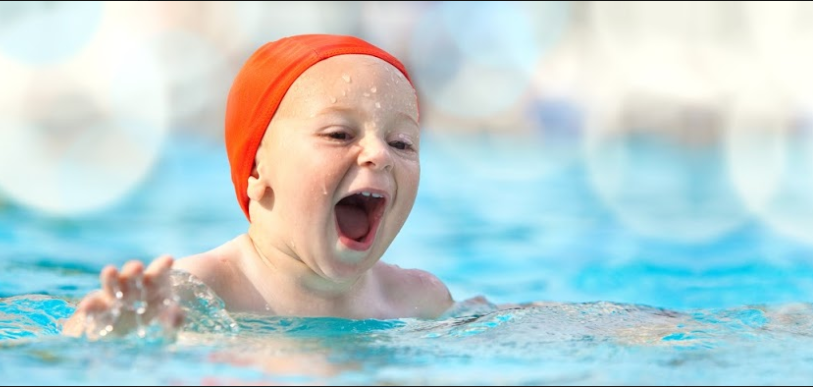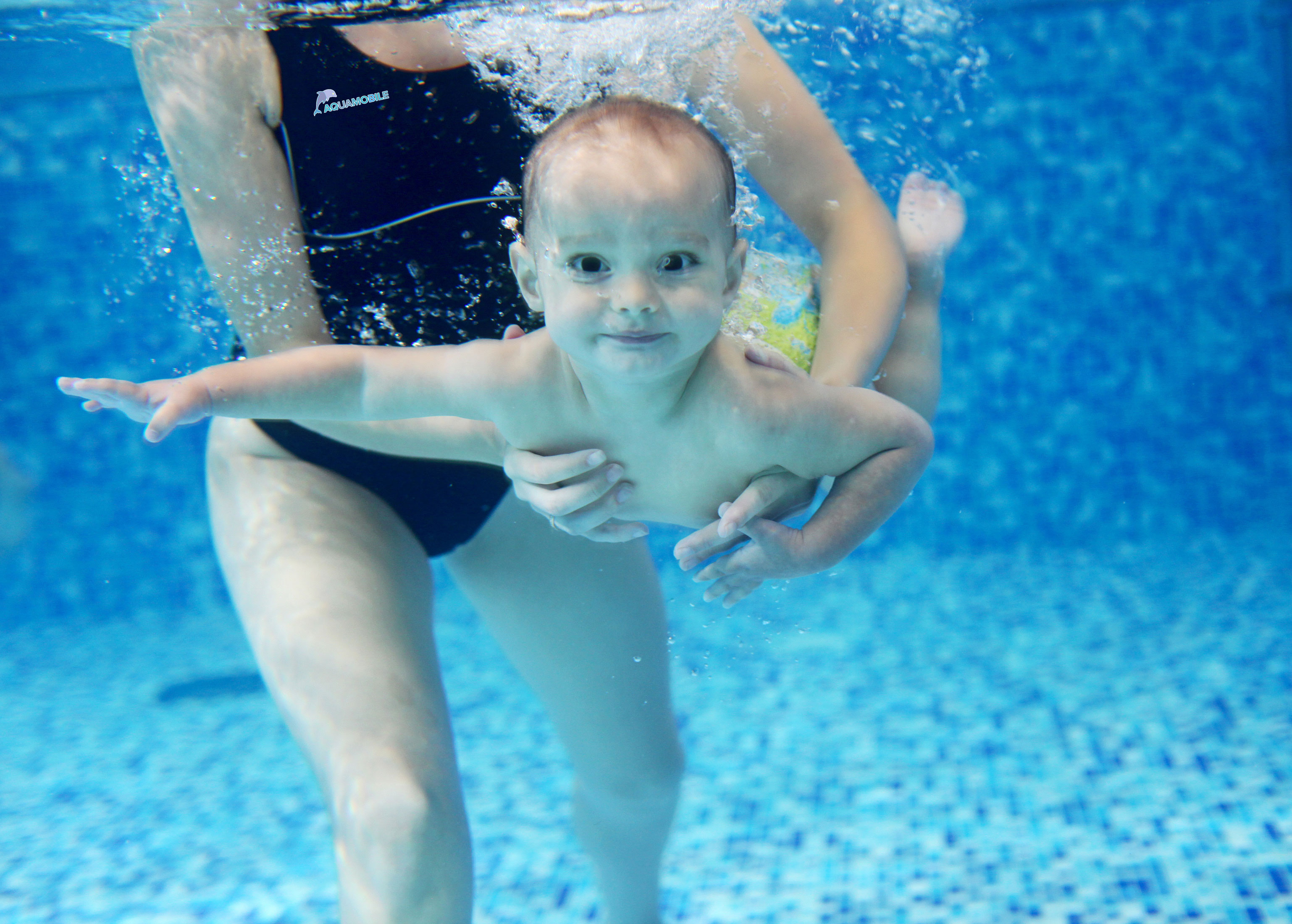
A baby’s first swim can be an exciting and nerve-wracking experience! You probably have plenty of questions about chlorine and babies. How early can I bring my baby into a pool? Is it safe to dunk a baby underwater? However, everyone wants to know: is chlorine safe for babies? Chlorine has plenty of effects and we know this as swimmers. If this chemical turns our hair green, what does it do to our babies? Before bringing your little ones into the water, consider a few things.
How does chlorine work to clean swimming pools?
Two byproducts come from chlorine binding with the dirt in the pool. Unfortunately, these are both brought in by the human body. Trihalomethanes and chloramines come from sweat, urine, dead skin cells and body products like lotions. Below we explain each of the chlorine byproducts:
- Trihalomethanes: float above the pool’s surface in gaseous form and cause eye and nasal passage irritation. Additionally, they are also the chlorine smell that comes with indoor pools.
- Chloramines: reduce the number of trihalomethanes that appear during the water treatment process. Drinking them can be toxic to the blood.
Although you should not worry about the smell of chlorine in an indoor pool. However, you should avoid it if it’s overwhelming. Public pools and commercial facilities balance pool chemicals. Just be cautious when visiting somewhere new.
What Chemicals in my Pool are Dangerous?
Trihalomethanes and chloramines are the byproducts of the free-acting chlorine binding with the dirt in the pool – or in other words the bacteria, and any other things that might be brought in on human bodies like sweat, urine, dead skin cells, and body products like lotions. These trihalomethanes float above the pool water in gaseous form and can cause irritated eyes and nasal passages. These are also the main cause of that “chlorine smell” we all recognize from an indoor pool. While you can’t avoid it completely, if the smell of chlorine in a pool is overwhelming you should try to steer clear. Big municipal pools, public pools, and other trusted locations will usually balance the water. So, this is something to watch out for when you’re visiting lesser-known establishments or less frequented facilities.
Why is my skin itchy after I get out of the pool?
What causes itchy skin and watery eyes? Is it the chloramines? It could be, but it is more likely the water’s pH levels. A pool with unbalanced pH can cause itchy eyes, dry skin and sneezing.
The pool’s pH level should match the levels of the skin and eyes. Pools should have a pH level between 7.2 and 7.6. Levels above 7.8 are a result of too much alkaline, which reduces chlorine’s ability to kill bacteria. While levels that are too low result in peeling tiles and cloudy water from the surfaces around your pool dissolving.
Is chlorine safe for babies?
In short, this answer is yes! However, you should always remember to make sure your baby is old enough to go swimming. Keep in mind how busy the pool is, the temperature of the water and whether the pool is indoors or outdoors. Chlorine will not hurt your baby as long as the water is balanced. Always take a soapy shower after getting out to avoid skin redness and your baby will always be excited to go swimming!



